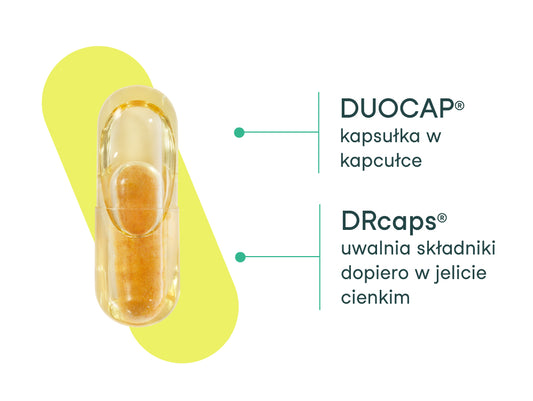
Poorly selected cosmetics or aggressive care treatments may disturb the skin's ecosystem and kill "beneficial" bacteria that protect the tightness of the epidermal barrier. Katarzyna Nozderko, a cosmetologist, tells us how to take care of our skin and its microbiome properly.
There's been a lot of talk about the intestinal microbiome lately, and we're starting to discover our internal world of microorganisms. However, we also have bacteria on our skin, including our face. What they are for and how we can take care of them, Katarzyna Nozderko, cosmetologist, owner of the Est Holistic Cosmetology office and the estGen brand, answers in an interview for nikaMag.
What role do microorganisms play on our skin?
Katarzyna Nozderko: First of all, it is worth emphasizing that today two terms referring to our skin are very popular - incorrectly used interchangeably, because in fact they have different meanings. I mean "microbiome" and "microbiota" . The term "microbiome" was coined by American geneticist and microbiologist Joshua Lederberg, winner of the Nobel Prize for achievements in the field of physiology and medicine, who officially used it in 2001. Lederberg proved in his analyzes that the surface of the skin is covered with a set of genes of all microorganisms found in the human body, i.e. fungi, mites, viruses and bacteria . When we talk about the collection of all microorganisms as cells, we should already use the term "microbiota" .
The skin is the largest organ we have and a quite complex ecosystem, which, with the development of molecular biology and DNA research, reveals more and more of its secrets to us. One of the most important functions of the skin is to constitute a protective barrier for the body - physical (stratum corneum) and biological (stratum ecologica). This is the first line of defense against pathogens. It is therefore important that all the microorganisms that make up the skin's microbiome function in full balance . Any disturbance in this state may lead to the development of pathogenic microflora and weaken the activity of the body's immune system . As a result, all kinds of dermatological disorders may appear on the skin , such as difficult-to-heal wounds, eczema, allergies, dandruff or acne.
Why do we often talk about different skin types, the pH level of the skin, and the selection of appropriate care products, but we are unlikely to hear about the bacteria living on the skin in a cosmetologist's office?
Fortunately, cosmetologists' awareness of the wise and delightful world of bacteria is systematically increasing. When I started my professional practice, topics such as a holistic approach to the client and looking at his skin in the context of the overall functioning of the body were met with great surprise. Today, specialists increasingly take this aspect into account in their work. The cosmetologists with whom I cooperate and whom I have been training for years in the field of healthy skin are aware of how important it is to analyze the condition of the skin, its needs and the assessment of the microbiome . Only when we have full knowledge are we able to implement appropriate care procedures. It is worth remembering that popular treatments, e.g. high-energy lasers or excessive chemical exfoliation, can very effectively destroy the skin ecosystem and cause irreversible dermatological changes. Healthy skin is skin that functions in full balance. I encourage you to choose specialists who are not influenced by fashion or illusory marketing, but are guided primarily by the good of the client.
Does washing your face and using cosmetics every day affect your facial microbiome? Does care kill bacteria?
Random treatments and products, especially those with an alkaline pH and containing aggressive substances such as SLS (Sodium Lauryl Sulfate) or SLES (Sodium Laureth Sulfate), will destroy the skin microbiome and lead to dysregulation of the epidermis barrier function and disturbances in the functioning of skin physiology and processes in it. taking place. There are many cosmetics available on the Polish market that provide the skin with an optimal physiological environment, taking into account all its needs. I am proud to admit that among them there is also a concentrate with my own probiotic recipe. It is worth consulting your cosmetologist to choose the appropriate care.


In the case of intestinal bacteria, it is said that our diet should be rich in plant products and fiber, which is food for bacteria. Will this diet also be good for the bacteria living on our skin? Or maybe we need to provide them with nourishment in the form of some cosmetic or agent, applying it to the skin?
Today it is known that the microbiota of the skin and intestines is a system of communicating vessels . First, the interaction between the brain and the intestines was discovered, which earned the latter the name "second brain" , then it was time for further analyses, and recently researchers have been talking about the existence of two other previously unknown axes: intestines - skin and brain - skin . The former explains the cause-and-effect relationship between diet and skin condition (life experience showed that such a relationship must exist, but today we already have scientific evidence for it). The latter, however, indicates that, for example, stress disturbs the tightness of the skin and, as a result, reduces the body's immunity. I always emphasize that the selection of individual care by a specialist will enable the client to take care of all aspects of their health, including creating an appropriate environment for the development of proper skin microbiota.
Cosmetics with prebiotics and probiotics are starting to appear on drugstore shelves. Are they good for the skin? If so, who should pay attention to such products first of all?
The answer is simple! Everyone, actually. I am a huge supporter of the presence of bacteria in cosmetology and cosmetic products. In today's highly industrialized world, the skin microbiota is destroyed by all kinds of pollution, but also by stress, nicotine, medications, random cosmetics ... Clients come to my office with eczema, skin allergies, dandruff, and acne. First of all, I make them aware that they need to take care of their skin both externally and internally . In such a situation, basic washing, toning and care products always work, including those containing prebiotics and probiotics, but changes in diet and lifestyle are equally important . I even created a special meditation for clients . Reducing cortisol, the stress hormone, has a beneficial effect on the condition of our skin. Such comprehensive action often gives satisfactory results already in the first month of our cooperation.
How can we take care of the microbiome of our skin, especially our face, at home?
I recommend avoiding touching your face with your hands every now and then, because this can easily spread dust and various pathogens onto the skin, which may disturb the skin's microbiome. Clean your mobile phone screen regularly and use headphones or the loudspeaker feature . Use cosmetics with UV filters , which, in addition to protection, will rebuild the barrier and take care of the physiology of the skin already at the stage of tanning, and here I can also boast about my original recipe. Observe the condition of your skin, take care to maintain its natural acidity and pH of approximately 5.5 to 6 in the folds (its disturbance manifests itself in greater dryness of dry skin and excessive lubrication of oily skin). Smoking also reduces skin elasticity. It is also worth limiting alcohol consumption (the sugar it contains interferes with proper cell regeneration). Use cold or lukewarm water to wash your face - never hot, so as not to risk disturbing the delicate balance of the skin. To dry your face, it is best to gently pat it rather than rub it . Of course, I encourage you to visit a office specializing in therapies for healthy skin, where individually selected care will maintain balance in the skin microbiome and take care of all aspects affecting the quality and health of the skin.

What makes our capsule stand out?
The nikalab capsule impresses not only with its appearance, but also with its operation. We used two innovative...








